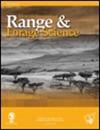火灾是敌是友:科学家在平衡媒体对国家公园火灾报道中的作用
IF 1.9
4区 环境科学与生态学
Q3 ECOLOGY
引用次数: 2
摘要
火灾可以摧毁基础设施和生计,并夺走生命。然而,火灾是不可避免的,并且在几千年来塑造生态系统的几个重要生态角色中发挥着重要作用。有计划的火灾也满足了人类的需求。对三年期间有关南非国家公园火灾的390份媒体报道(印刷、在线和广播)的关键媒体内容进行分析,以调查大众媒体对火灾的描述。我们发现强烈强调反应性灭火以及对火灾的主要负面情绪(占媒体总报道量的93.9%),主要关注火灾对基础设施、人类健康或生命和植被的损失、破坏和威胁。在少数有科学家参与的案例中(2.3%),叙事、情感和图像提供了更细致入微的视角,认为火灾既有有害的后果,也有有益的后果(63.6%),传授了关键的火灾生态学概念,以更好地理解火灾行为,并强调了主动减少火灾风险措施的重要性。鉴于大众媒体对公众和决策者的观点和意见的影响,以及它的社会政治和管理后果,我们得出结论,科学家和记者应该做更多的工作来相互接触。我们为科学家提供途径和建议,告诉他们如何增加媒体足迹,以促进更平衡的媒体对火灾的描述。图形抽象本文章由计算机程序翻译,如有差异,请以英文原文为准。
Fire as friend or foe: the role of scientists in balancing media coverage of fires in National Parks
Fire can destroy infrastructure and livelihoods, and claim lives. Yet, fire is inevitable and plays several vital ecological roles that have shaped ecosystems over millennia. Planned fires also serve human needs. Critical media content analysis of 390 media reports (print, online and broadcast) on fires in South African National Parks over a three-year period were used to investigate the portrayal of fire by the mass media. We found a strong emphasis on reactive fire suppression along with a predominantly negative sentiment towards fire (93.9% of total media reach) focussing primarily on losses, destruction and the threat of fires to infrastructure, human health or lives and vegetation. In the few cases where scientists were involved (2.3% of total reach), the narrative, sentiment and images provided a more nuanced perspective of fire as having both detrimental and beneficial consequences (63.6%), imparting key fire ecology concepts to understand fire behaviour better and highlighting the importance of proactive fire-risk reduction measures. Given the influence of the mass media on the views and opinions of the public and policymakers, and its socio-political and management consequences, we conclude that scientists and journalists should do more to engage with one another. We provide pathways and tips to scientists on how to increase their media footprint to promote a more balanced media portrayal of fire. GRAPHICAL ABSTRACT
求助全文
通过发布文献求助,成功后即可免费获取论文全文。
去求助
来源期刊

African Journal of Range & Forage Science
ECOLOGY-ENVIRONMENTAL SCIENCES
CiteScore
4.00
自引率
14.30%
发文量
35
审稿时长
>12 weeks
期刊介绍:
The African Journal of Range & Forage Science is the leading rangeland and pastoral journal in Africa. The Journal is dedicated to publishing quality original material that advances rangeland ecology and pasture management. The journal aims to publish research of international importance from any region, but as an African journal, we are particularly interested in research from Africa and relevant to the continent. The Journal promotes both science and its application and authors are encouraged to explicitly identify the practical implications of their work. Peer-reviewed research papers and research notes deal primarily with all aspects of rangeland and pasture ecology and management, including the ecophysiology and biogeochemistry of rangelands and pastures, terrestrial plant–herbivore interactions (both domestic and wild), rangeland assessment and monitoring, effects of climate change on rangelands, rangeland and pasture management, rangeland rehabilitation, ecosystem services in support of production, conservation and biodiversity goals, and the identification and development of intensive and semi-intensive pasture and forage resources to meet livestock production needs. Articles highlighting transdisciplinary linkages among biophysical and social sciences that support management, policy and societal values are particularly encouraged. The Journal includes relevant book reviews and invited perspectives that contribute to the development of range and forage science. Letters to the editor that debate issues raised in the Journal are acceptable. The African Journal of Range & Forage Science is the official journal of the Grassland Society of Southern Africa.
 求助内容:
求助内容: 应助结果提醒方式:
应助结果提醒方式:


